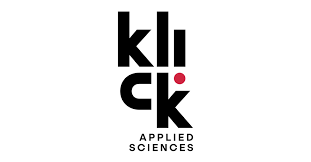Klick Research: People Using Voice Technology for Medication Info Still Get the Most Accurate Results From Google Assistant
Klick Research: People Using Voice Technology for Medication Info Still Get the Most Accurate Results From Google Assistant
— Siri and Alexa improve search comprehension rates, suggesting enhanced AI over the past two years, but still lag behind Google as more people turn to voice assistants during pandemic
TORONTO & NEW YORK–(BUSINESS WIRE)–New research from Klick Applied Sciences found that people using interactive voice technology for information on medications still get the most accurate results from Google Assistant. The data are especially relevant as consumers have increasingly been turning to these platforms during the pandemic. Klick conducted the research as a follow-up to its June 2019 first-of-its-kind study assessing Google Assistant, Siri, and Alexa’s comprehension of the 50 most dispensed brand and generic medication names in the U.S.
According to the team behind the just-released, “Medication name comprehension of Intelligent Virtual Assistants: A comparison of Amazon Alexa, Google Assistant, and Apple Siri between 2019 and 2021” study in Frontiers in Digital Health, while Google continued to provide the most accurate search results for drug names, Alexa and Siri dramatically improved their comprehension accuracy. The findings signal an improvement in their AI software algorithms to better recognize the complex speech characteristics of most medication names.
“A voice assistant’s ability to accurately recognize proper medication names can have life-altering consequences for patients who use technology to help manage their health,” explained Yan Fossat, Vice President of Applied Sciences, Klick Labs and principal investigator of the ongoing research. “We continue to be encouraged by the progress of these findings and expect AI to grow more ‘intelligent’ as it gathers more data from users to update software algorithms. Currently, however, our research suggests that patients and consumers should not solely rely on voice platforms for accessing important medical information and advice.”
Key results of the study
- Siri delivered the most improved performance with 78.4% brand-name accuracy and 75% generic accuracy (up from 58.5% and 51.2% respectively).
- Alexa again ranked third with 64.2% accuracy on brand names (up from 54.6% in 2019), and 66.7% for generics (up from 45.5%).
- Google Assistant’s accuracy rates largely remained the same, with 86% for brand names and 84.3% for generics, indicating a possible “ceiling effect” in performance to researchers as the software has already achieved peak accuracy, and the small percentage of issues it encountered were likely due to human error.
Interestingly, there were no significant differences in accuracy based on people’s accents, unlike the 2019 study, which revealed Siri and Alexa were 8-to-11% less accurate for people with foreign accents.
Adam Palanica, PhD, a Klick Scientist and co-author of both studies, said, “Not only does this show that the AI systems have made tremendous progress in better detecting and understanding accents, but it tells us that the latest voice assistant technology is more usable for consumers from a wider range of demographic groups, which is extremely important and good news given the diverse population.”
Fossat added that Klick’s latest study is especially telling as the global health crisis has accelerated the uptake of the already-growing trend toward using voice assistants in medicine and telehealth. He cited pre-pandemic data showing that almost half of the 19.1 million U.S. consumers, who previously used a voice assistant for a healthcare inquiry or task, had used it to find medication information.
“Interactive voice assistants are fulfilling a very legitimate need for people who are using them to help manage several aspects of their lives, including their health,” he said. “While many new technologies can generate excitement with their potential to transform healthcare, it is critical to decouple hype from health by scientifically and objectively assessing their real capabilities.”
Klick Applied Sciences’ diverse team of data scientists, biomedical engineers, and social scientists conducts scientific research and develops AI solutions as part of the company’s work to help improve the well-being of patient populations using its proven commercial, scientific, medical, and technological expertise. Its 2019 Voice Assistants Medical Name Comprehension study laid the scientific foundation for rigorously testing voice assistant consumer devices in a controlled manner. Additional research in peer-reviewed journals, include “The need for artificial intelligence in digital therapeutics,” “Consensus study of risk factors and symptoms of SARS-CoV-2 (COVID-19) using biomedical literature and social media data,” and “COVID-19 has inspired global healthcare innovation.”
About Klick Group
The Klick Group of companies – Klick Health (including Klick Katalyst), Klick Media Group, Klick Applied Sciences (including Klick Labs), Klick Consulting, Klick Ventures, and Sensei Labs – is an ecosystem of brilliant talent collectively working to maximize their people and clients’ full potential. Established in 1997, Klick has teams in New York, Philadelphia, Toronto, and across North America. Klick has consistently been named a Best Managed Company and Great Place to Work. In 2020, the company was recognized with 14 Best Workplace awards, including Best Workplaces for Women, Best Workplaces for Inclusion, Employee-Recommended Workplaces, Most Admired Corporate Cultures, and FORTUNE’s Best Places to Work in New York. For more information on joining Klick, go to careers.klick.com.
Contacts
For media inquiries:
Marisa McWilliams, Manager, Communications
Email: [email protected]
Phone: 862-335-8165
Sheryl Steinberg, VP, Communications
Email: [email protected]
Phone: 416-214-4977 ext. 2412
Business Wire source:




